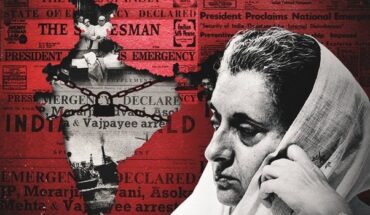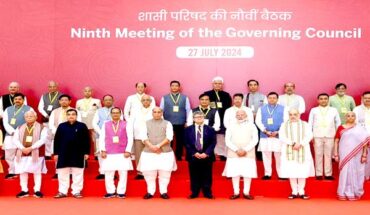Aphorism ‘Third Generation Curse’ has been interchangeably used for ‘three-generation rule’, and ‘three-generation myth’. This suggests that most family-businesses don’t survive beyond three generations. It also asserts that family fortunes dissipate over generations, and the cause of failure lies with their heirs. In different countries, there are different versions of aphorism, e.g., ‘Pai rico, filho nobre, neto pobre’ in Portuguese which means ‘Rich dad, noble son, poor grandson’, ‘Rich father; noble son; poor grandson’ in Brazil, or ‘the first generation builds, the second strengthens, and the third spends it all’ in France, or ‘shirtsleeves to shirtsleeves in three generations’ in the USA, ‘Wealth does not last beyond three generations’ in China, etc.
A study attributed to the wealth consultancy firm – The Williams Group – found that nine (09) in ten (10) families tend to lose their fortune by the third generation, and 7 in 10 by the 2nd generation. The study involved 3,250 families over a 20-year period.
There are many reasons behind the failure of businesses in next generation, e.g., ‘trust and communication breakdown’, making it ‘obligatory for next generation to join the business against their interest’, joining the existing family business as a ‘fallback option’, ‘lack of training or exposure’, ‘lack of work for each and every family-member in the family-business’, ‘family disagreements’, ‘extravagance’, ‘no succession planning’, among others.
Many pharmaceutical companies have shown the way to beat three-generation curse. Merck is the oldest family-controlled pharmaceutical and chemical company in the world, and remains family-owned for 13 generations at present. Friedrich Jacob Merck founded the company at Darmstadt, Germany in 1668. In India, one of the oldest pharma companies is Dabur, an Ayurvedic medicine company, started by Dr. S. K. Burman in 1884. This is being spearheaded by the fifth generation represented by Dr. Anand Burman as the Chairman and Amit Burman as Vice-Chairman. Certain other companies dealing in ayurveda products have existence from pre-1947 era such as Shree Baidyanath Ayurved Bhawan (1917), Himalaya Drug Company (1930), Charak Pharma (1947). But the credit for being the first company to produce Drugs and Pharmaceutical products goes to Bengal Chemicals & Pharmaceuticals Works Limited (later on, renamed as Bengal Chemicals & Pharmaceuticals Limited) which was established in 1901 by Acharya Prafulla Chandra Roy. BCPL was nationalized in December, 1980. In 2017, it turned profitable after 64 years. So, the history of drugs & pharmaceutical companies other than ayurvedic medicine companies is less than 125 years old. There are less than 15 such pharmaceutical companies which were set up in pre-1947 era and are still in existence. The list comprises mainly Alembic (1907), Raptakos, Brett & Co. (1930), CIPLA (1935), East India Pharmaceutical Works (1936), FDC (1936), Albert David (1938), Dey’s Medical Stores (1941), Unichem Labs (1944), VHB Life Sciences (1946), and Indoco Remedies (1947).
I, myself, with my co-authors – Dr. Vikas Daryal and Vikas Aggarwal in a study titled – Ownership, Control, Management and Succession in Family Businesses: A Study on Pharmaceutical Companies in India (2022) based on top 100 pharmaceutical companies in India, observed that 20% of these pharmaceutical companies were being run by first-generation entrepreneurs, 51% pharma companies were being headed by second-generation entrepreneurs, and 25% pharma companies were being run by the third-generation entrepreneurs. Fourth-generation entrepreneurs ran only 3% pharmaceutical companies, and only one company was being run by fifth-generation entrepreneurs! This cannot be attributed to just third-generation curse at present as the history of such pharmaceutical companies in India is less than 125 years old as described in preceding paragraph.
Prominent pharmaceutical companies with 2nd generation participation includes Sun Pharma, Mankind, Alkem, Lupin, INTAS Pharma, Dr. Reddy’s Labs, Glenmark, Aristo Pharma, IPCA Labs, Cadila Pharma, Ajanta Pharma, Blue Cross, Medley Pharma, Corona Remedies, Fourrts India, Samarth Pharma, Serum Institute of India, Biological E, Natco Pharma, among others. These companies are going to pass on the business to next generation.
Pharmaceutical Companies which have active third-generation entrepreneurs include Torrent Pharma, Zydus (Cadila) Group (with a prominent group company – Zydus Lifesciences), Micro Labs, Alembic, FDC, Himalaya Wellness Company (formerly Himalaya Drug Company), Indoco, Bharat Serum, Wallace, Raptakos, Brett & Co., Wockhardt, Albert David, Tablets India, RPG Life Sciences, East India Pharma, Jagson Pal, ENTOD, Charak Pharma, among others. Successful transition of this set of companies will prove the ‘third-generation myth’ wrong.
In India, pharmaceutical sector has witnessed ‘Third Generation Curse’ on multiple occasions. One prominent case is of erstwhile Ranbaxy which was acquired by Bhai Mohan Singh from two cousins – Ranjit Singh and Gurbax Singh (Ranbaxy got name from these two names) in 1952. Dr. Parvinder Singh took over the company from his father – Bhai Mohan Singh, and ran it till his death in 1999. But in the third generation – Malvinder Singh and Shivinder Singh, it literally resulted into squandering of a business empire. In June 2008, promoters sold their residual stake of 34.8% to Daiichi Sankyo, a prominent Japanese pharmaceutical company.
In last few months, news on potential stake sale by promoters of CIPLA was a surprise in the background that the business is headed by the second-generation representative and Non-Executive Chairman, Dr. Yusuf Khwaja Hamied. CIPLA has operations in more than 80 countries, and is quite successful as it is ranked third largest in pharmaceutical sector in India. In 2022-23, the company had revenue of Rs. 22,753 Crore. But Samina Vaziralli (Hamied), third-generation entrepreneur, and niece of Dr. Y.K.Hamied, stepped down from the position of Executive Vice-Chairperson of the company in January 2024. Her younger brother, Kamil Hamied was groomed by the family head as the successor but he had resigned in June 2015 to achieve his personal growth objectives. Parting remarks of Samina Hamied were pertinent when she stated that “a decade ago, they believed that Cipla needed an engaged and active promoter from the next generation to steer and strengthen the company as we built a world-class leadership team, forayed into new geographies and incubated new businesses…..”. In a way, it echoed the feeling that it will lead to separation of ‘operational management’ of the business from ‘family owners’ but news on potential stake sale by promoters who own 33.47 per cent in the company led to strengthening the belief in ‘three-generation curse’.
Even promoters remain fearful of this aphorism. Ajay Sharma as the Director of Shree Baidyanath Ayurved Bhawan shared in one of his addresses that being a third-generation family member in the family-business; he had a lot of burden on his shoulders. He drew an analogy to the trinity of Hinduism; Brahma – the creator, Vishnu – the preserver and Mahesh – the destroyer. With this in mind, he posed a question to himself – hey am I Mahesh? Have I been born to ‘destroy what my grand-father created and my father preserved’? With failure rate during third-generation in his mind, he went on to study 250-odd family businesses. He shared the lessons in the book – How to Thrive in a Family Business: Business Lessons from my Baidyanath Journey. To put it in context, Pt. Ramnarayan Sharma started the manufacturing of Ayurvedic medicines at Baidyanath Dham (in Bihar) in the year 1917. Now, with an existence of more than 107 years, fourth generation entrepreneurs are managing the family business.
Frank Stangenberg – Haverkamp, 11th generation representative and the then Chairman of E. Merck KG, the parent company of Merck, in one of his interview (May 23, 2017 in the Korea Herald) shared important lessons in this context when he stated that they (as a family) ‘think in generations, and not in quarters’. He attributed the success of oldest pharmaceutical company to ‘unique governance structure’ of the company which kept the company under the control (70.3 per cent stake with 153 family members) of the family but separated its ‘management from the ownership’. Irrespective of the gender, family members inherit the stake from parents. Family members keep the stake in the form of investment. CEO and CFO are not family members. It is also emphasized to family members that they have not worked for it so they should not forget that. Therefore, they are not entitled to anything, they have just inherited it. And if they want more, they have to work for it.
Dr. Anil Kumar Angrish, Associate Professor, Department of Pharmaceutical Management, NIPER, SAS Nagar (Mohali), Punjab
Disclaimer: Views are personal and do not represent the views of the Institute.






